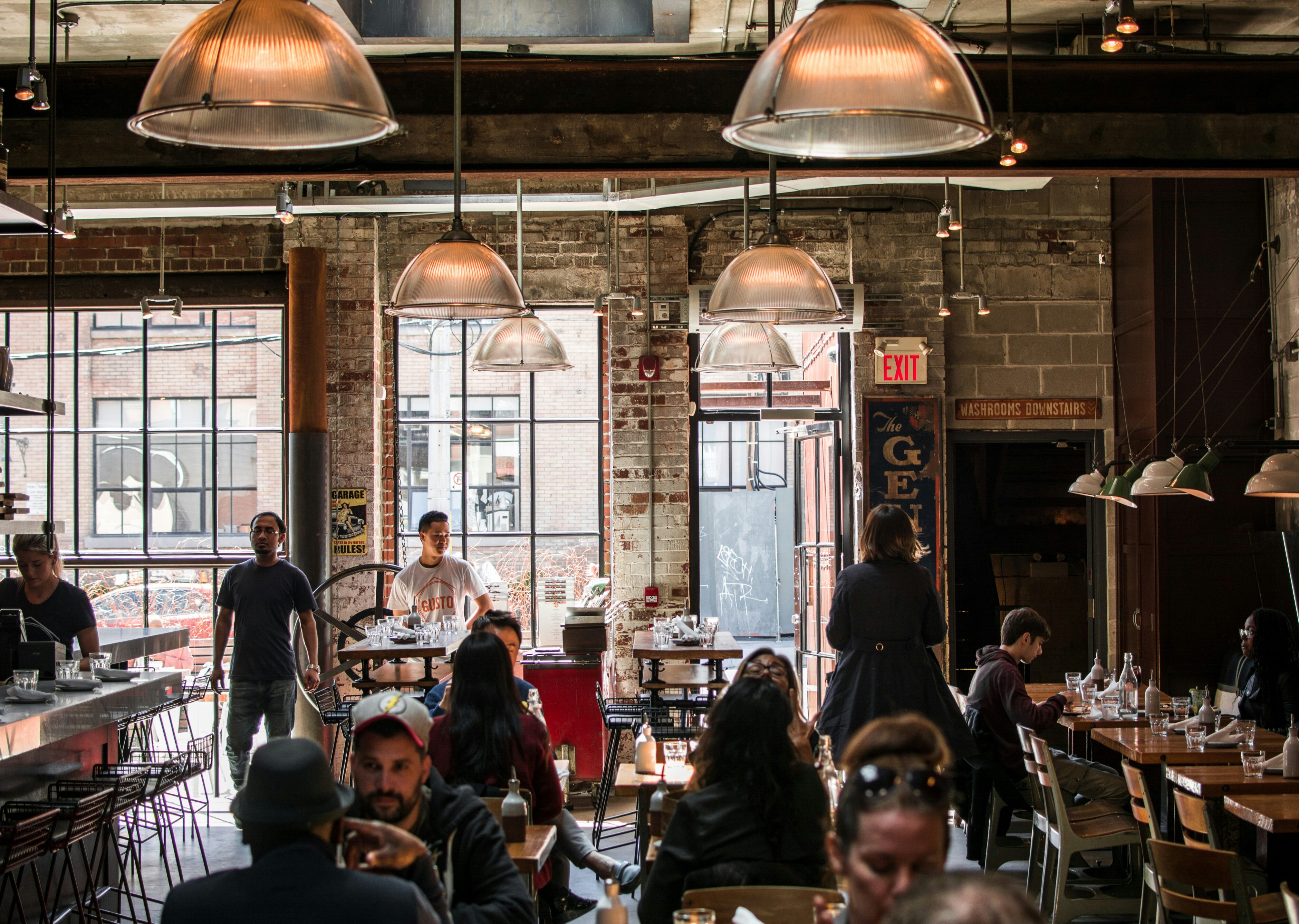THE GREEN LINE
ORIGINAL STORY
YOUTH IN JUSTICE SYSTEM GET SECOND CHANCE WITH DORSET PARK NONPROFIT
The Green Line team visited Back 2 Basickz in the Scarborough neighbourhood to learn how its programming helps youth facing challenges with the justice system get back on track.
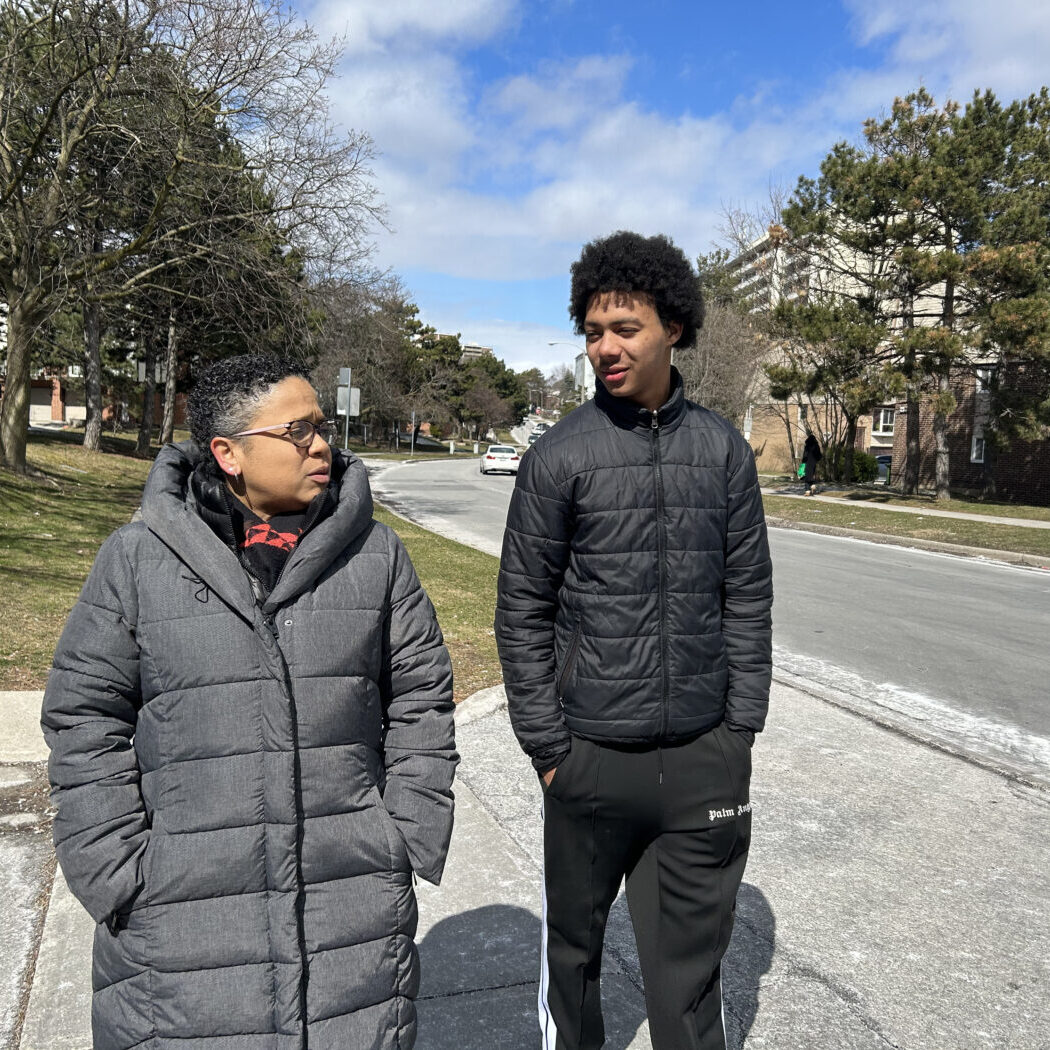
Justice Caseworker Tara Evans (pictured left) walks around Dorset Park with Jayden (pictured right), a participant in Back 2 Basickz.


AMANDA SERAPHINA JAMES RAJAKUMAR
Indian immigrant with a post-grad in journalism from Centennial College. Now living in Grange Park, meeting new people, and hearing different stories. Has four names, so it’s a pick-your-player situation.
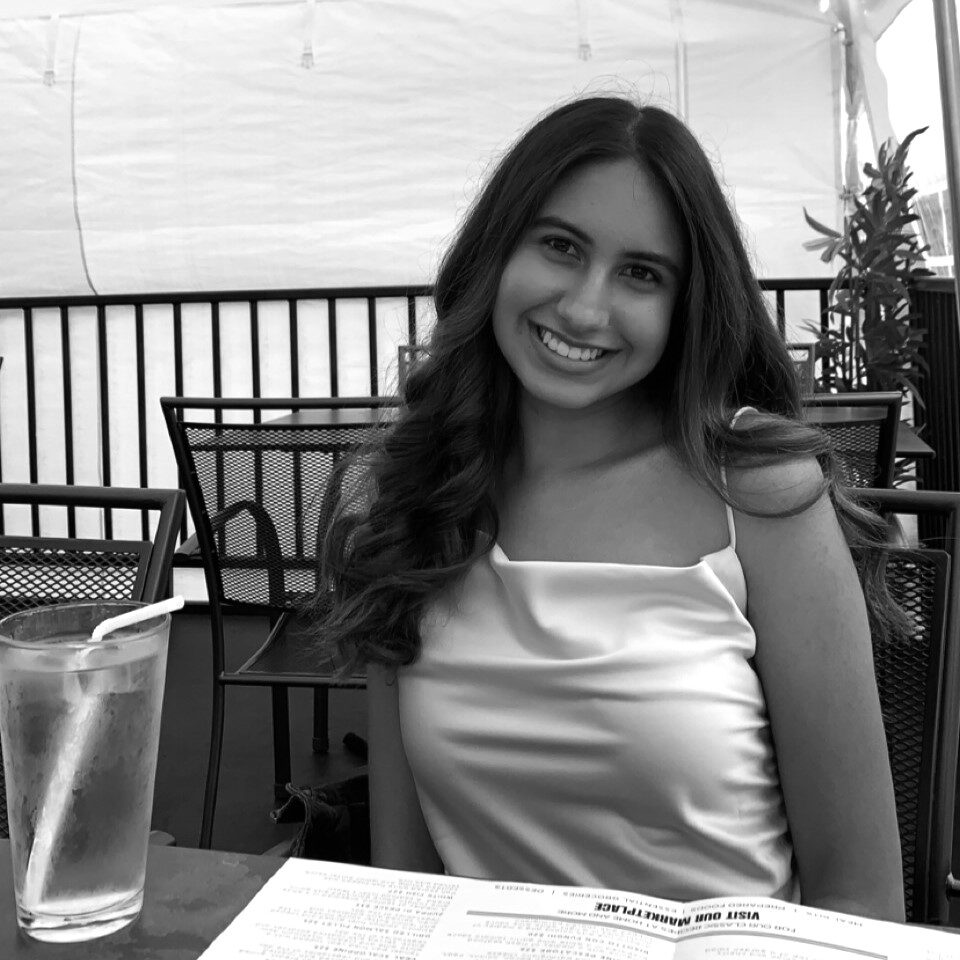
ANEESA BHANJI
Currently a journalism student at Toronto Metropolitan University who's also studying communication and design. Grew up in Vaughan, now living in downtown Toronto. Always loves a good chai latte.
April 19, 2024
Transitioning from school to work isn’t easy, and it can be even harder for youth who’ve been in the criminal justice system.
But one group in Dorset Park believes everyone deserves a second chance. From post-grad mentoring to entrepreneurial workshops, Back 2 Basickz teaches life lessons to local youth so they can improve their circumstances. The nonprofit youth support service is located on Scarborough’s west end.
Amanda Coombs, executive director of Back 2 Basickz, says she wants to serve her community by providing employment programs that can break the local cycle of poverty. She believes connecting Black youth with Black counsellors with similar lived experience will give them the confidence to pursue a variety of career options.
"Dorset Park has a large Black community, right? Over 3,000 youth just in the Dorset Park community alone, and when we looked at some other stats, it said that the majority of the youth — they all have warehouse jobs,” Coombs says, adding that Back 2 Basickz wants to encourage youth to pursue other careers where Black people are underrepresented. “Usually when [Black youth] finish school, they continue to stay in warehouse jobs or minimum paying jobs.”
According to the 2016 population census, Dorset Park has 1,700 residents from ages 15 and above in trades, transport, equipment operator and related occupations, as well as over 3,600 residents from ages 15 and above in sales and service jobs. Meanwhile, a demographic assessment of Dorset Park based on the 2006 census shows that the employment rate for residents from ages 15 to 18 was just over 30 per cent, while it was close to 60 per cent for those ages 20 to 24.
Unlike many other after-school programs, Back 2 Basickz aims to help youth from all walks of life, including those who are incarcerated or are on trial for crimes.
The nonprofit's Youth Reset program is helping Jayden, 20, work through his challenges with the criminal justice system. He currently volunteers as an outreach worker in Dorset Park where he talks to youth and their families about the growth opportunities at Back 2 Basickz.
“I got into a little trouble with my friend last year. I just made a wrong decision. But since finding a way to go to Back 2 Basickz, they've been helping me just stay on the right path, get focused on my career," he says. "They actually want to help me get back into school, start jobs and just basically positive things, so I don't go back down the wrong road.”
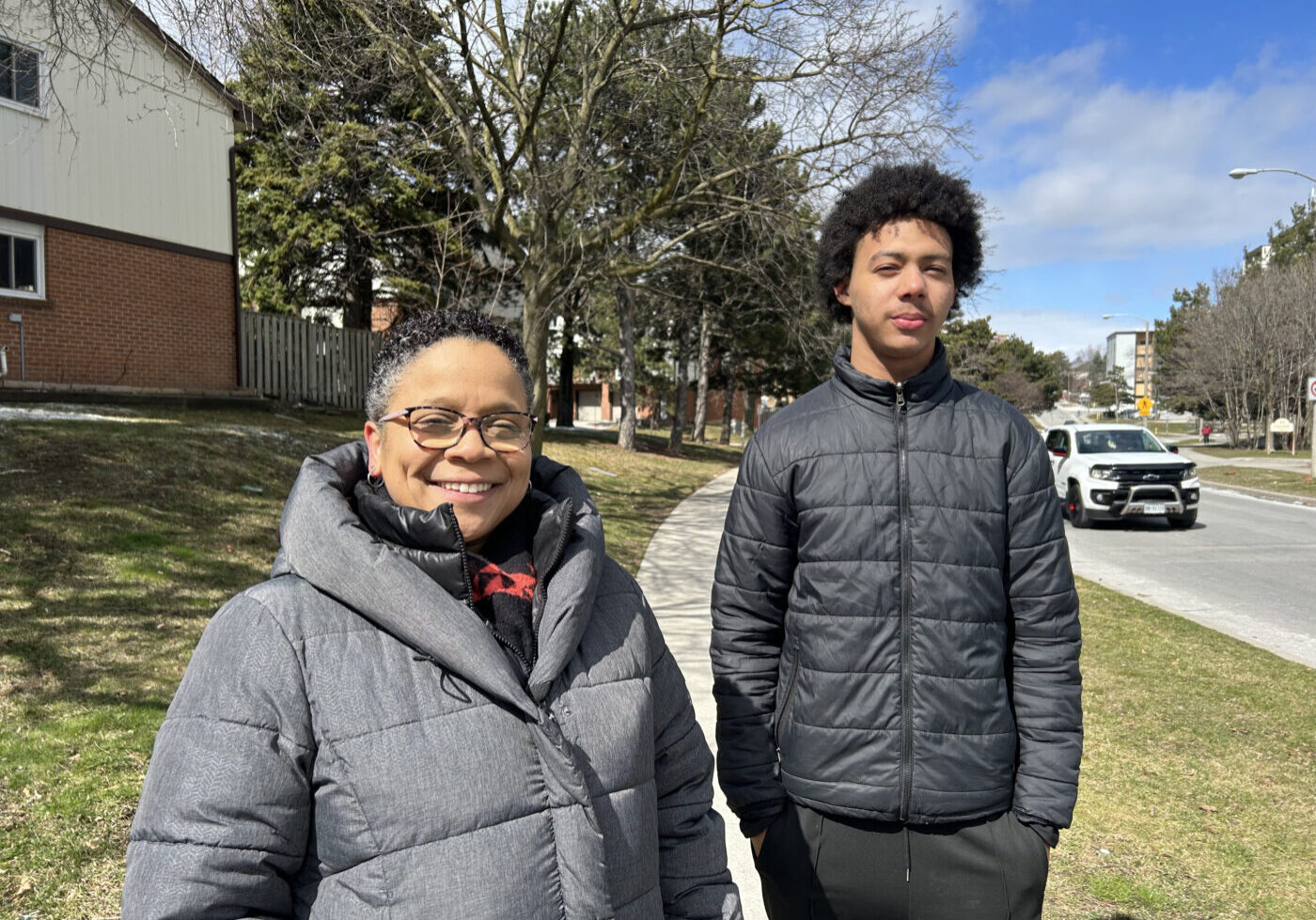
Justice caseworker Tara Evans (pictured left) stands outside in Dorset Park with Jayden (pictured right), a youth participant in Back 2 Basickz’s Youth Reset program.

Youth with a criminal record often face barriers when trying to reintegrate into society, such as finding a job or place to live. Tara Evans, a mental health and justice caseworker with Back 2 Basickz, says they face a lot of stigma.
“Many of the young people, particularly racialized youth, are faced with barriers in many systems,” she says. “So, their encounter with the justice system is often quite complex where they may have experienced racism and discrimination in the education system, perhaps in the healthcare system.”
“It's really essential that [support] services have an understanding of all of the factors that might have led them to become involved [in the justice system], as well as so that the services can address their specific and unique needs.”
Due to preconceived notions and stereotypes, Evans explains, Black youth face racism as they grow older. “Instead of seeing young people within their humanity as kids, they are already perceived as dangerous and violent,” she says.
She cites discrimination at school, higher levels of suspension and not being able to afford support like counselling as some of the reasons why these youth get into trouble with the law.
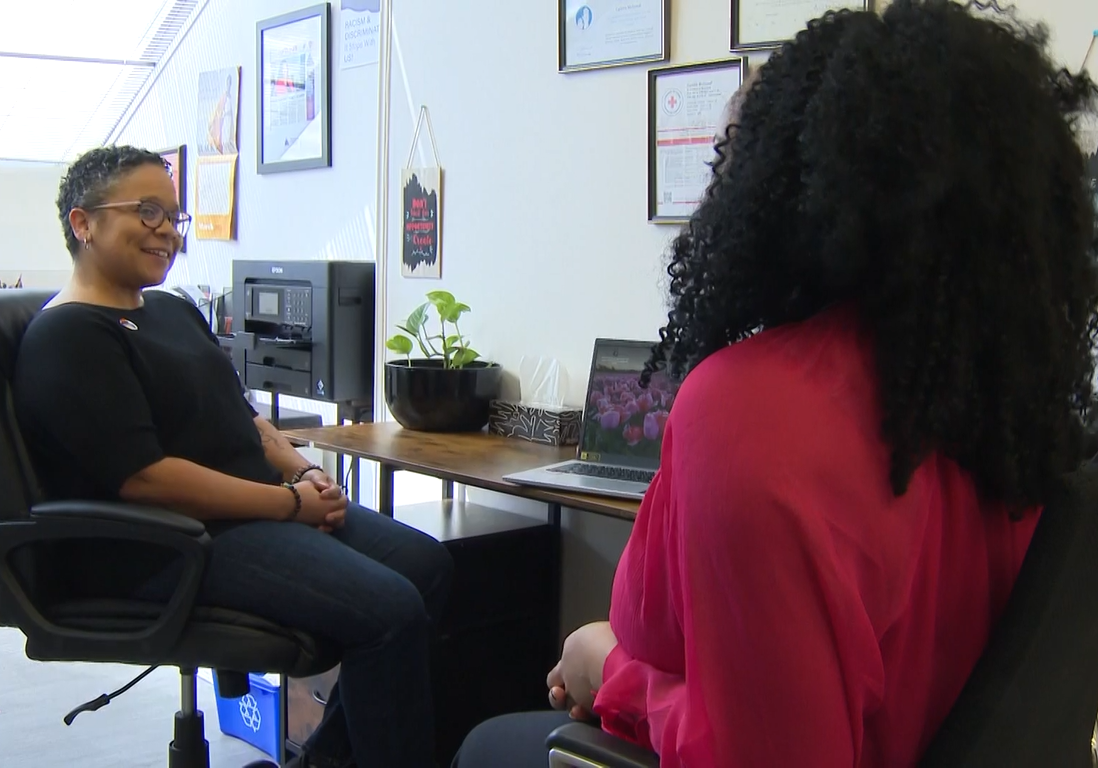
Justice caseworker Tara Evans (pictured left) chats in the Back 2 Basickz office with executive director Amanda Coombs (pictured right).

Indeed, a federal study from the Department of Justice, titled “Black Youth and the Criminal Justice System: Summary Report of an Engagement Process in Canada,” highlighted over-policing at school and committing crimes to meet basic needs as some of the reasons why Black youth can encounter the criminal justice system.
But Coombs believes the right resources can help youth like Jayden get back on track.
“Black youth are overrepresented in the justice system. And one of the reasons why most of the youth come in contact with the justice system is because there's not enough available resources and supports for them in the community, which is one of the reasons why we started Back 2 Basickz,” she says.
“We find that poverty sometimes leaves a lot of these youth to make decisions that they wouldn't make otherwise.”
Fact-Check Yourself
Sources and
further reading
Don't take our word for it —
check our sources for yourself.
